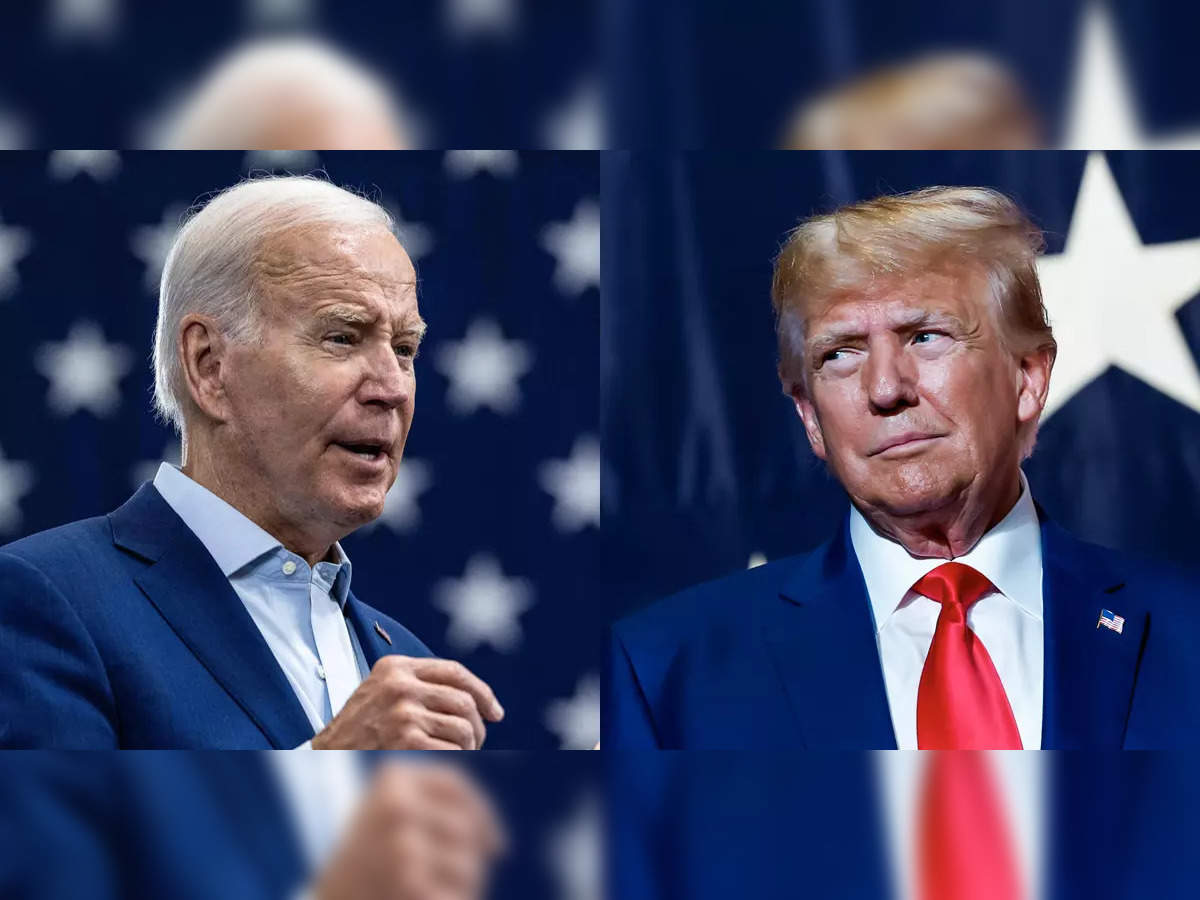In the ever-evolving world of politics, election contest news provides a vital glimpse into the competitive landscape of electoral races. This type of news covers everything from candidate debates and campaign strategies to voter sentiment and election results. Understanding the intricacies of election contests can offer a deeper appreciation for the democratic process and its impact on society. This article delves into the latest election contest news, exploring the key elements that shape electoral battles, the significance of these contests, and how they influence political outcomes.
The Role of Election Contests in Democracy

election contest news are more than just competitive events; they are a cornerstone of democratic governance. They offer citizens the opportunity to choose their leaders and influence policy directions. Here’s a closer look at why these contests are so crucial.
Election Contests as Democratic Pillars
At the heart of democratic systems is the principle of fair and competitive elections. election contest news embody this principle by allowing multiple candidates to vie for public office, providing voters with choices, and ensuring that elected officials are held accountable. This competitive element fosters transparency and encourages a more engaged electorate.
election contest news help to ensure that no single candidate or party can monopolize power indefinitely. By regularly challenging incumbents and introducing fresh perspectives, these contests contribute to a dynamic and responsive political environment. They also help to reflect the will of the people, as the outcome of these contests directly impacts the formation of government and policy-making.
Impact on Voter Engagement and Turnout
Election contests play a significant role in motivating voter participation. High-profile contests, in particular, can generate substantial media coverage and public interest, which often leads to increased voter turnout. When voters are presented with competitive races, they are more likely to feel that their vote matters and that they have a stake in the outcome.
Additionally, election contests can stimulate public debate and discussion, raising awareness about key issues and encouraging citizens to become more informed about their choices. This increased engagement can contribute to a more vibrant and participatory democracy.
Influence on Policy and Governance
The results of election contests have direct implications for policy and governance. Winners of these contests assume positions of power and influence, which allows them to shape public policy and drive legislative agendas. As such, the outcome of an election can have far-reaching effects on everything from economic policy to social justice issues.
Furthermore, election contests often highlight key issues and debates that influence future policymaking. Candidates may bring attention to specific concerns, propose new initiatives, or challenge existing policies, all of which can shape the political discourse and impact future governance.
Key Components of Election Contest News
Election contest news encompasses various elements that provide a comprehensive view of the electoral process. Understanding these components can help readers better grasp the nuances of election coverage.
Candidate Profiles and Campaign Strategies
A significant aspect of election contest news is the coverage of candidate profiles and their campaign strategies. This includes detailed information about each candidate’s background, policy positions, and campaign approaches.
- Background Information: Voters need to know who the candidates are, including their professional histories, personal stories, and previous political experience. This information helps voters make informed decisions about which candidate aligns best with their values and interests.
- Policy Positions: Election contest news often highlights the key policy proposals and platforms of each candidate. Understanding where candidates stand on important issues can be crucial for voters who want to support a candidate with a vision that aligns with their own.
- Campaign Strategies: The strategies candidates employ during their campaigns, such as messaging, advertising, and grassroots organizing, are frequently covered in election contest news. These strategies can significantly impact the effectiveness of a campaign and the candidate’s chances of success.
Voter Sentiment and Polling Data
Polling data and voter sentiment analysis are critical components of election contest news. Polls provide insights into how different segments of the population view the candidates and their policies, offering a snapshot of the current state of the race.
- Polling Trends: Regular updates on polling data can show shifts in voter preferences over time. Analyzing these trends helps to gauge the overall direction of the contest and identify factors that may be influencing voter opinions.
- Voter Demographics: Understanding the demographics of voters, including factors like age, gender, and geographic location, can provide valuable context for interpreting polling data and assessing the potential impact on election outcomes.
- Sentiment Analysis: Beyond raw polling numbers, sentiment analysis explores the emotions and attitudes of voters. This can include reactions to campaign events, debates, and other factors that influence how voters feel about the candidates and the election as a whole.
Debate Coverage and Media Influence
Debates and media coverage are key elements of election contest news. They offer opportunities for candidates to present their positions and engage directly with voters.
- Debate Highlights: Coverage of debates provides insights into how candidates perform under pressure, their ability to articulate their policies, and their responses to questions and challenges. Debate performances can significantly impact voter perceptions and the overall dynamics of the race.
- Media Coverage: The way the media covers an election can shape public perceptions and influence voter opinions. Media outlets often highlight particular aspects of the race, such as controversies, scandals, or key endorsements, which can affect the narrative and focus of the election.
- Social Media Influence: Social media plays an increasingly important role in election contests, with candidates and supporters using platforms to share messages, engage with voters, and mobilize support. Social media trends and discussions can also impact how election news is perceived and spread.
Recent Trends in Election Contest News
Election contest news is dynamic and influenced by a variety of trends and developments. Here’s a look at some of the recent trends shaping election coverage.
Increased Use of Digital Campaigning
Digital campaigning has become a central feature of modern election contests. Candidates and parties are leveraging social media, online advertising, and digital platforms to reach voters and promote their messages.
- Social Media Strategies: Candidates use social media platforms to connect with voters, share updates, and engage in real-time conversations. Social media campaigns can help candidates build a following, mobilize supporters, and respond to emerging issues quickly.
- Online Fundraising: Digital tools enable candidates to raise funds from a broad base of supporters through online donations. Fundraising campaigns often utilize email marketing, crowdfunding platforms, and social media to generate contributions.
- Data Analytics: Advanced data analytics are used to target specific voter demographics, track campaign performance, and optimize messaging. By analyzing voter data, campaigns can tailor their strategies and improve their outreach efforts.
Growing Influence of Independent and Third-Party Candidates
Independent and third-party candidates are gaining more visibility and influence in election contests. These candidates often challenge the dominance of major political parties and offer alternative viewpoints.
- Increased Visibility: Independent and third-party candidates are receiving more media attention and support from grassroots organizations. This increased visibility helps them reach a wider audience and compete more effectively in elections.
- Impact on Major Parties: The presence of independent and third-party candidates can affect the outcomes of elections by drawing votes away from major-party candidates. This can lead to unexpected results and influence the overall dynamics of the race.
- Policy Innovation: Independent and third-party candidates often introduce new policy ideas and perspectives that can shape the political discourse and impact major party platforms.
Rising Importance of Issue-Based Campaigning
Issue-based campaigning is becoming increasingly prominent, with candidates focusing on specific issues that resonate with voters. This approach allows candidates to differentiate themselves and appeal to targeted voter segments.
- Focus on Key Issues: Candidates are highlighting issues such as climate change, healthcare, and economic inequality to address the concerns of voters. By positioning themselves as champions of particular issues, candidates can build strong support and mobilize voters around shared values.
- Grassroots Advocacy: Issue-based campaigns often involve grassroots advocacy and community engagement. Candidates may work with advocacy groups, organize rallies, and participate in public forums to promote their stances on key issues.
- Impact on Policy Debates: The emphasis on specific issues can influence policy debates and shape the agendas of major parties. Candidates’ positions on these issues may drive broader discussions and lead to changes in policy priorities.
The Future of Election Contest News
Looking ahead, the landscape of election contest news is likely to continue evolving in response to technological advancements and shifting political dynamics. Here’s a glimpse into the future of election news coverage.
Advances in Technology and Data Analytics
Technology will continue to play a significant role in election contest news, with advancements in data analytics and digital tools shaping how campaigns are conducted and reported.
- Enhanced Data Collection: Improved data collection methods will allow campaigns and analysts to gather more detailed information about voter preferences and behaviors. This data can be used to refine campaign strategies and target messaging more effectively.
- Artificial Intelligence: AI technologies may be used to analyze large volumes of data, predict election outcomes, and optimize campaign strategies. AI tools can also help identify emerging trends and potential issues in real-time.
- Virtual Campaigning: Virtual and remote campaigning methods will become more prevalent, allowing candidates to reach voters through online platforms and virtual events. This can enhance accessibility and engagement, particularly in a digital-first world.
Evolution of Media and Information Consumption
The way people consume news and information is changing, with implications for election contest news coverage.
- Shift to Digital Media: Traditional media outlets are facing competition from digital platforms, including social media and online news sources. This shift will influence how election news is reported and consumed, with a greater emphasis on digital content and interactive formats.
- Misinformation and Fact-Checking: The spread of misinformation and fake news is a growing concern in election contests. Fact-checking organizations and media outlets will play a crucial role in combating misinformation and ensuring the accuracy of election coverage.
- Increased Transparency: There will likely be a greater demand for transparency and accountability in election reporting. Voters and stakeholders will expect more detailed and unbiased coverage of election contests, including insights into campaign financing and media influence.
Impact of Global Trends on Local Elections
Global political trends and events can have an impact on local and national elections, influencing election contest news and outcomes.
- International Relations: Global issues such as trade policies, climate change, and international conflicts can shape local electoral debates and influence voter priorities. Candidates may address these global concerns in their campaigns and policy proposals.
- Cross-Border Influences: Political developments in other countries, such as election interference or political movements, can affect domestic elections. Understanding these influences can provide context for local election contests and their broader implications.
- Globalization and Connectivity: The increasing interconnectedness of the world can lead to more cross-border political discussions and collaborations. This global perspective can shape local election news and contribute to a more comprehensive understanding of electoral dynamics.
Conclusion
Election contest news is a critical aspect of the democratic process, providing valuable insights into the competitive nature of elections and their impact on governance. By understanding the various elements of election contests, including candidate profiles, voter sentiment, and campaign strategies, readers can gain a deeper appreciation of the complexities of electoral races.
As election contest news continues to evolve, staying informed about the latest trends and developments will be essential for understanding the political landscape and participating in the democratic process. Whether through digital media, issue-based campaigning, or advancements in technology, election contest news will remain a vital source of information and engagement for voters and political observers alike.
